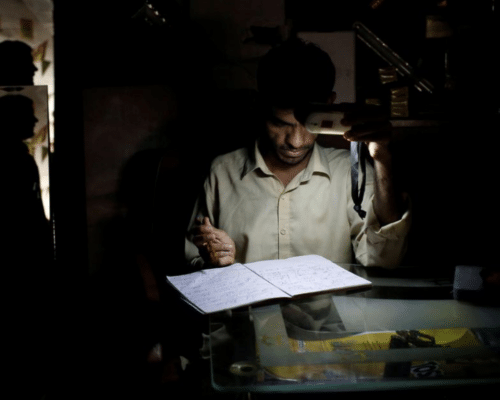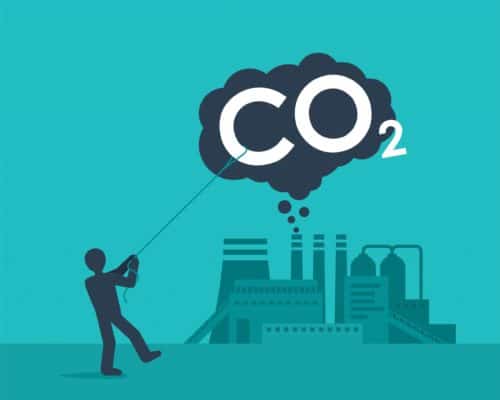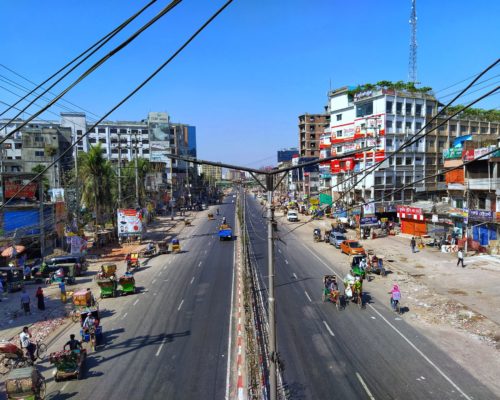Should the G7 Invest In Gas Again? – Podcast
19 July 2022 – by Ashley Crowther Comments (0)
Listen on Apple Podcasts, Spotify, Google Podcasts and Stitcher
Energy Tracker Asia talks to Friederike Roder in this episode of Energy Insights. They speak about the recent G7 summit 2022, where leaders of the globe’s richest nations decided to invest in gas to shore up global energy supplies amidst global shortages. They also discuss the current energy crisis gripping the world, how more gas investments by the G7 will impact developing countries, German Chancellor Sholz’s recent remarks and what they could mean, the recent unrest in Asia from fuel shortages, LNG investments by developed countries in developing countries and other topics.
Friederike Roder is the Vice President of Global Advocacy at Global Citizen. She has been working in development for over 15 years in the OECD, the German International Cooperation, the African Union and several other NGOs. She holds a Master’s in International Affairs, specialising in international security and development and one in political science.
*The following transcript has been edited for clarity
—
How the World Came Into the Current Energy Crisis in 2022
Energy Tracker Asia: So before we start drilling into the recent G7 summit and its outcomes related to climate change, gas investments and other related topics, would you be able to summarise what you’re currently working on and any other kind of bonafide you think are important?
Friederike Roder: Yes, of course. I’m the Vice President of Global Advocacy at Global Citizen, an international organisation fighting extreme poverty. For us, the fight against extreme poverty cannot be disassociated from fighting climate change. So it’s one of our big priorities this year, where we hope to see progress, especially for those on the frontline in the fight against climate change. The poorest often suffer the largest consequences, like those faced in small island states.
The G7 summit was an important milestone for Global Citizen. We’re now preparing for the second half of the year, like organising a festival in New York, and we will also be at the UN general assembly, along with having an event in Accra, Ghana. We hope our efforts there will provide more commitments to extreme poverty and climate change and hopefully lead to a successful COP27 and G20 summit.
Energy Tracker Asia: I think a good place to get started is if we travel back to last year to the climate conference COP26. There was a lot of momentum shown by countries which promised phase-outs on coal, signing the global methane pledge, and many other environmental commitments. Could you give a rundown on how we went from those seemingly positive steps to where we are today and why the G7 is now talking about fossil fuel investments in gas again or restarting coal power plants. How did we get here?
Friederike Roder: COP26 wasn’t at the level we wanted it to be, but we did see progress. You mentioned coal and methane, but we also committed to ending fossil fuel financing that year. And then the promises to revise Nationally Determined Contributions (NDCs) by COP27. I think both of these commitments were very important.
So what happened after? What you will primarily hear is the 24th of February, which was the Russian invasion of Ukraine that totally derailed the energy market but had other impacts, for instance, on food prices. This had huge implications, which governments must deal with, and can have many short-term consequences. We understand this, but it’s not an excuse to derail us from the plans to get to net-zero, end fossil fuels and stay in line with keeping below the 1.5-degree temperature roof.
Also, I think what’s important is that the Russian invasion of Ukraine can’t explain everything. There were already a lot of changes happening in the energy market before the invasion due to activity picking up massively after the break we saw from the Covid-19 pandemic. Additionally, we didn’t invest sufficiently in renewables earlier. So the problems were already there but exacerbated by the war, which is ongoing. Yet, this can’t be an excuse to go back in time.
What Are the Global Implications for the G7 Making Investments Into Gas Again?
Energy Tracker Asia: Granted we are in an energy crisis, what does the G7’s change in course or change of tone on more gas investments mean? Not only for Europe but globally.
Friederike Roder: What we saw during the G7 summit is, in the end, not a rollback on the COP26 commitments. During the G7 summit, when negotiations were ongoing, they focused on the gas question – there was a real risk that the G7 would roll back the COP26 commitments. So, what this led to was the G7 spent a lot of energy on the gas question instead of discussing progress. While we wanted to see more progress on, for instance, the coal phase-out, fossil fuel financing, climate mitigation and adaptation in the poorest countries and the $100 billion goal for assistance to developing countries, it wasn’t possible because of the discussions surrounding gas and rollbacks on COP26.
It’s a missed opportunity. Also, another problem is that the G7 was expected to show a clear leadership signal. I mentioned earlier that the second half of the year would have important decisions to be made, so the G7 needed to show leadership at the summit to help drive COP27 in November and the G20 summit for success. Unfortunately, we got mixed sentiments and messages and focused too much on gas. It’s a real pity because I think what we saw in previous years is that we’ve pivoted from focusing on net-zero to understanding that there is no future with fossil fuels.
We’ve made huge progress on coal and oil, but now the big question is how do we go about gas? First, I would say a genuine concern for us is the lack of leadership on climate before going into COP27. Where is it coming from? I would suggest we don’t take the G7 as a block; I would focus more specifically on Europe. Over the last few years, I think Europe really has this ambition to become a climate leader, and they are now at risk of losing this because their decisions have not been clear.
Europe is saying that it wants nothing to do with things, not in line with the 1.5-degree goal, but they are unclear on how they want to go about this. It needs to explain this because, at this stage, gas investments aren’t aligned with the 1.5-degree goal. Of course, as a short-term solution, Europe is now looking to import more Liquefied Natural Gas (LNG) from the US. Europe is counting on the US to become more of a climate champion. It would be much more difficult for Europe to play this role if, at the same time, they’re the most important client of American fossil fuels – I think we’re starting to see this happen. For example, Europe is trying to solve their energy crisis by securing more LNG. However, the LNG has to come from somewhere as fewer contracts are going to China – and we’re seeing a coal revival in Southeast Asia, so it’s a real concern.
I think there’s still a possibility, especially for Europe and Germany, to show that they mean business on climate. I’m singling out Germany because they still have the G7 presidency until the end of the year and are the largest EU member state. On paper, Germany has very ambitious climate goals. Chancellor Scholz made this a priority, and at the same time, it is hugely impacted by what’s happening with Russia.
Suppose Germany now goes ahead and shows details and how they will massively invest in renewables at home and abroad and how they will keep those goals by showing ambitions on financing and leadership in Europe. In that case, this could make a big difference ahead of COP27. It would restore credibility and hopefully achieve the progress needed.
Is Germany Moving Away From Renewables and Back to Fossil Fuels in 2022?
Energy Tracker Asia: You mentioned Chancellor Scholz, who at the G7 was one of the main proponents of this great emphasis on investing in gas. He called it more of a short-term solution. What are your thoughts on this recent communication? I quote: “We all agree where the future lies, and it’s not with gas. That’s particularly the case for Germany. We’ll be carbon neutral by 2045, and we’ll have consequences for our use in fossil fuels”. Given everything you’ve just mentioned, is there a sense of irony that he has said this but acted differently? What do you think of his decisions so far, and do you think they are justified given the context that particularly Germany but also Europe and the entire world is facing?
Friederike Roder: I’m not ignoring Germany’s energy crisis, and it’s certainly a critical situation. They need short-term fixes but investing in gas infrastructure abroad is not a short-term fix. You’re locking in infrastructure for fossil fuels long-term. This idea of using it for blue hydrogen later is honestly an illusion at this stage. Such solutions would be marvellous, but the reality is that we’re not there yet. In reality, the carbon footprint of blue hydrogen from gas is massive if you look at the whole production process. Also, we don’t know whether carbon capture technology is effective.
So, yes, it does sound contradictory. I still hope they can detail what it all means for Germany to reach carbon neutrality by 2045. They also need to see themselves as part of the EU and obviously as a global player because, in the end, it doesn’t matter if Germany goes carbon neutral and the rest of the world doesn’t. We need to have a global analysis here, along with global action.
I also find it disappointing that Germany has portrayed these gas investments and justified them by saying that developing countries get those investments and that it’s important for them or that it hasn’t been done in the past. First, I think Chancellor Sholz shouldn’t be speaking on behalf of Senegal [where they are planning on investing in LNG infrastructure]. I hope Germany can shift and restore credibility and play a leadership role instead.
Additionally, Germany turned to Senegal to resolve its energy crisis because of their problems. I don’t think this is the priority in the minds of the Senegalese people. Another reality is renewables are a better solution, especially for African countries. This is not just from a climate perspective but also from an economic point because renewables are already or are soon-to-be cheaper. It’s a real pity because Sholtz did say that they would also invest in renewables. I mean, it’s good to state this, but we need to see plans. Unless Germany comes up with a huge package, which they haven’t done so far, renewables are already way behind in Africa, and we’re not leveraging potential. At this stage, I think we have less than 2% of solar energy produced in Africa.
Globally, let’s look at international financial institutions. They invest four times more in gas projects than wind or solar energy projects, which is crazy given where we stand. The G7 did announce a $600 billion package for investments in infrastructure to be mobilised over the next five years – including from private sources. However, again, there’s no breakdown. We don’t have visibility. For instance, the $300 billion announced by the EU is an old announcement from last year – before we went into this huge energy crisis.
I understand short-term fixes, but it will be a disaster if we don’t see leadership during this crisis. By leadership, I mean not just catering to your interest and short-term outlooks but keeping track of the long-term objective. We ran into this crisis because we didn’t take the energy transition seriously beforehand. Now would be time to use this crisis to make a huge shift.
Yet, we’re not seeing this, but we see windfall profits for fossil fuel companies because of high energy prices. This is something we could redirect into investments in renewables. There is some activity, but we need to see this coming from the G7 – particularly Europe and Germany.
Will Developing Countries See More Political Unrest From the Energy Crisis?
Energy Tracker Asia: From a developmental perspective, for example, what I’m getting from you is that there is an argument that these gas investments could be put to better use in, say, supporting green shifts in countries in Africa or in Asia or the Pacific to shore up their energy supplies. We’ve already seen a lot of fossil fuel infrastructure buckling under the situation the globe is in now. For example, there’s civil unrest in Sri Lanka due to energy and fuel access. How do you see this all playing out, especially in developing countries?
Friederike Roder: This is exactly what we will see more of, like what’s happening in Sri Lanka, because those impacted first by energy price spikes are the poorest. They are already under a lot of strain because of the impact of Covid-19 and climate change. Some people would like to say that the best argument is to do everything possible to reduce prices in the short term – this is where gas comes in. However, this is a wrong analysis – not just from looking at gas as an energy investment but also because we didn’t manage Covid-19 correctly.
In Europe, there is an impression that Covid-19 is nearly over and that we got through it, but this is not the same globally. They didn’t get the same access to vaccines, and governments did have the same resources to invest in the economy by providing subsidies and support for the poor. On top of this, you have the rise in energy and food prices and climate change. This means we must use this crisis to invest heavily in renewables and the green transition. At the same time, this would allow us to bring about a social shift that enables us to fight extreme poverty and food insecurity.
The opportunities are there because the crises are interrelated and the solutions too. Financing it is not a budgetary question; the money is there. The question is, where do you put it? The G7 talked a lot about South Africa being an example in the just energy transition plan. Others were under discussion, too, like Indonesia and India. It will be important to see these coming through with ambitious targets and the right financing. However, this shouldn’t just focus on emerging markets; we must also support poorer countries in their energy transitions. This would ensure that people access sustainable energy and give them new economic opportunities.
Apart from the fact that we had to fight a rollback of COP26 commitments at the G7, I’m most disappointed that there wasn’t any progress on the $100 billion promise. This should have been implemented by 2020. All we got from the G7 is that they are confident of meeting this goal next year – three years late. I mean, it’s great that they are confident, but they must also understand that the rest of the world is not necessarily confident in their promises. What matters is action.
There are still a few months to go until COP27; if there were an actual signal from the G7 ahead of the conference, it would go a long way. It would certainly help restore the credibility and trust we need to make collective progress.
How Will the G7’s Gas Investments Impact COP27 in 2022?
Energy Tracker Asia: From your perspective, do you see the G7’s recent decisions on gas investments giving COP27 a bit of trouble going forward for negotiations between countries?
Friederike Roder: There are mixed signals. I mean, let’s call it for what it is, fossil fuel investments, but there’s also a lack of sufficient progress elsewhere. I think the G7 was not at the standard it should have been. As I mentioned earlier, there was nothing new on the $100 billion, and we could also mention loss and damage – this was acknowledged by the G7, which was great, but there was no concrete action. It even seems as if the group sees the “global shield” against climate risk as insurance as a substitute for loss and damage. This would be terrible because this is not what it is. It’s an important initiative, but it can’t be a substitute for proper loss and damage financing.
Put together, it’s a mix of all these things. That means that the G7 hasn’t taken the leadership role that we wanted to see from them. In the past, you often had a small group of countries; often enough, it was the G7. It can be another group of countries doing the right thing – taking leadership, taking audacious decisions and then you have the rest follow. It sets the right tone for bigger negotiations such as the COP and the G20.
I do want to highlight that the G7 is not the only group of countries where leadership can come from. For example, we should emphasise that we are referring to the G7 as a whole so far. However, in reality, it mainly was Germany and Italy pushing for a mention of gas investments. Others like the UK and France were pushing against it. So, it’s not a homogenous block, which is reassuring.
We are also seeing great progress elsewhere. For instance, Finland has an extremely ambitious NDC and Western Australia is transitioning out of coal by 2029. There are certainly more examples like these. I’m not talking about a climate club here, but if leaders want to make progress and are serious about fighting climate change, they can find the right alliances and make commitments and announcements before COP27. The UN general assembly is also another week that will be important. At Global Citizen, we hope our festivals will help.
Can the G7 Invest in Gas Without Causing Climate Lock-in Effects?
Energy Tracker Asia: I wanted to finish with what the G7 communicated after the summit when they referred to new fossil fuel investments that would not create “lock-in effects”. Do you think that this is possible given the circumstances?
Friederike Roder: You mentioned Chancellor Sholz mentioning the climate goals earlier, and they said temporary. I think this will be difficult. However, I’m an internal optimist. So, I think what we need to recognise is that they aren’t being specific. If true, this sentence that Sholz mentioned at the press conference afterwards is great, but he needs to put forward the plans and explain what Germany is planning as part of the EU.
—
Disclaimer: The views and opinions expressed in this article are those of the authors and do not necessarily reflect the official policy or position of Energy Tracker Asia.



